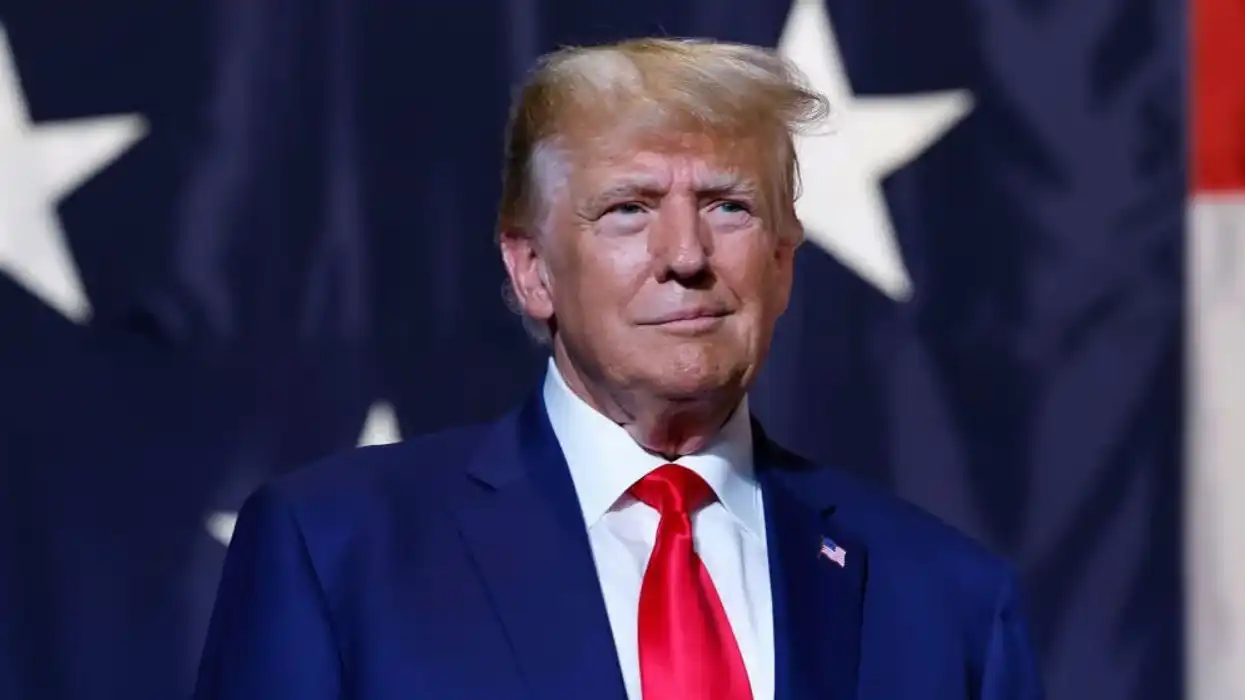
Anna Moneymaker/Getty Images

The Democrat-appointed justices on Colorado's Supreme Court ruled 4-3 in December that former President Donald Trump engaged in an insurrection on Jan. 6, is ineligible to be president, and cannot therefore appear on the ballot in the state. In the months since, Maine and Illinois have similarly disqualified the Republican front-runner, prompting Trump's legal team to file appeals.
The U.S. Supreme Court issued a timely opinion Monday morning, one day ahead of the Republican primaries in Maine and Colorado: "Because the Constitution makes Congress, rather than the States, responsible for enforcing Section 3 against federal officeholders and candidates, we reverse."
This decision will undoubtedly impact efforts in other states by activist groups to disenfranchise their fellow voters and spare President Joe Biden from facing his top rival in the upcoming election.
Six petitioners backed by a Democrat-aligned group sued in September 2023 to have Trump removed from Colorado ballots. Citizens for Responsibility and Ethics in Washington brought the case on behalf of the Colorado voters.
CREW, a partisan activist group that fancies itself as a government watchdog, was optimized as an attack dog for the Democratic Party by Media Matters founder David Brock in advance of the 2016 election. The Colorado initiative was executed under CREW's current president Noah Bookbinder, up until recently a member of the Biden Department of Homeland Security's Homeland Security Advisory Council.
According to the petitioners, Section 3 of the 14th Amendment concerning insurrection applies to the president, in this case Trump, and the Republican's actions on Jan. 6, 2021, qualified.
Claiming it did "not reach these conclusions lightly," the state court's majority determined that Trump had "engaged in" insurrection; that Section 3 applies to the presidency; and that Trump's Jan. 6 speech at the Ellipse was not protected by the First Amendment.
Blaze News previously noted that Trump's legal team, which appealed the ruling, has argued that:
According to its Monday opinion per curiam, the U.S. Supreme Court evidently agrees with Trump's legal team on this final bullet.
The Supreme Court noted that Congress is empowered by the Constitution to pass "appropriate legislation" to "enforce" the Fourteenth Amendment but that states enjoy no such power in the case of national elections.
"We conclude that States may disqualify persons holding or attempting to hold state office," wrote the court. "But States have no power under the Constitution to enforce Section 3 with respect to federal offices, especially the Presidency."
"This can hardly come as a surprise, given that the substantive provisions of the Amendment 'embody significant limitations on state authority,'" continued the high court. "Under the Amendment, States cannot abridge privileges or immunities, deprive persons of life, liberty, or property without due process, deny equal protection, or deny male inhabitants the right to vote. ... On the other hand, the Fourteenth Amendment grants new power to Congress to enforce the provisions of the Amendment against the States."
All nine members of the court agreed that the Colorado Supreme Court's decision "cannot stand."
Justice Amy Coney Barrett noted that the "Court has settled a politically charged issue in the volatile season of a Presidential election. ... For present purposes, our differences are far less important than our unanimity: All nine Justices agree on the outcome of this case. That is the message Americans should take home."
Justices Sonia Sotomayor, Elena Kagan, and Ketanji Brown Jackson indicated in their concurring opinion that allowing Colorado to unilaterally remove a presidential candidate is unfit as a candidate in a national election would "create a chaotic state-by-state patchwork, at odds with our Nation's federalism principles."
The liberal justices took issue, however, with the majority's announcement that a "disqualification for insurrection can occur only when Congress enacts a particular kind of legislation pursuant to Section 5 of the Fourteenth Amendment," noting that in doing so, "the majority shuts the door on other potential means of federal enforcement."
Like Blaze News? Bypass the censors, sign up for our newsletters, and get stories like this direct to your inbox. Sign up here!